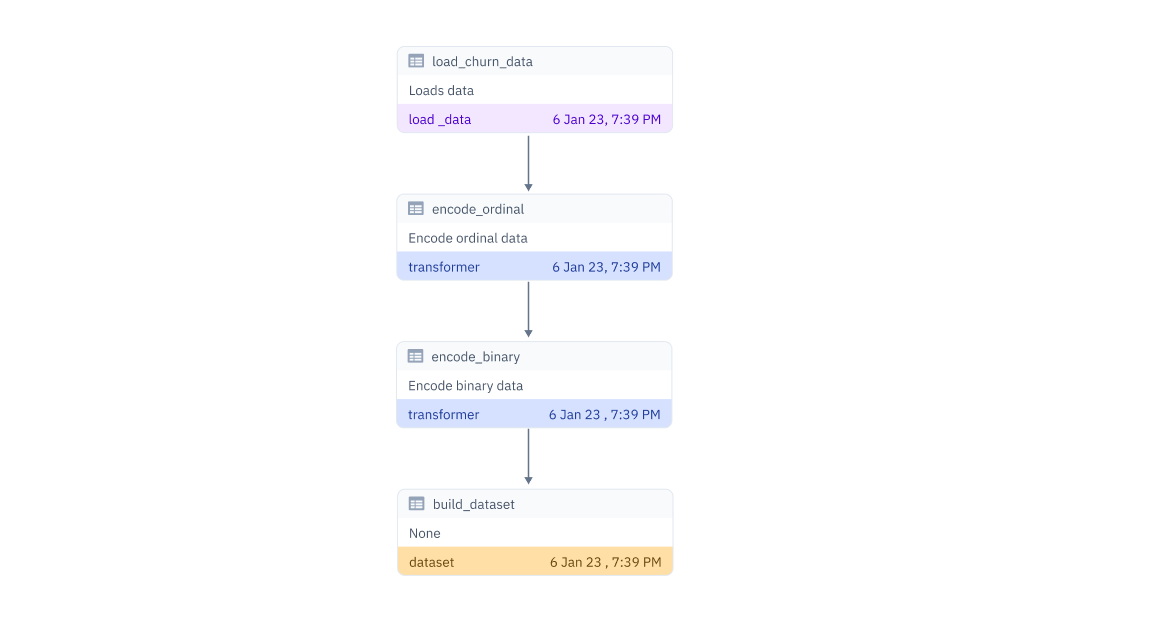from sklearn.preprocessing import OrdinalEncoder
import pandas as pd
from pureml.decorators import dataset, transformer, load_data
@load_data()
def load_churn_data():
'''
Loads data
'''
df = pd.read_csv('./bigml_59c28831336c6604c800002a.csv')
return df
@transformer()
def encode_ordinal(df):
'''
Encode ordinal data
'''
col_ord = ['state', 'phone number']
df_ord = df[col_ord]
feat = OrdinalEncoder().fit_transform(df_ord)
df[col_ord] = feat
return df
@transformer()
def encode_binary(df):
'''
Encode binary data
'''
df['voice mail plan'] = df['voice mail plan'].map({'yes':1, 'no':0})
df['international plan'] = df['international plan'].map({'yes':1, 'no':0})
df['churn'] = df['churn'].map({True:1, False:0})
return df
@dataset('telecom_churn')
def build_dataset():
'''
None
'''
df = load_churn_data()
df = encode_ordinal(df)
df = encode_binary(df)
return df
df = build_dataset()


